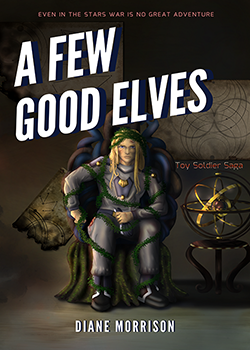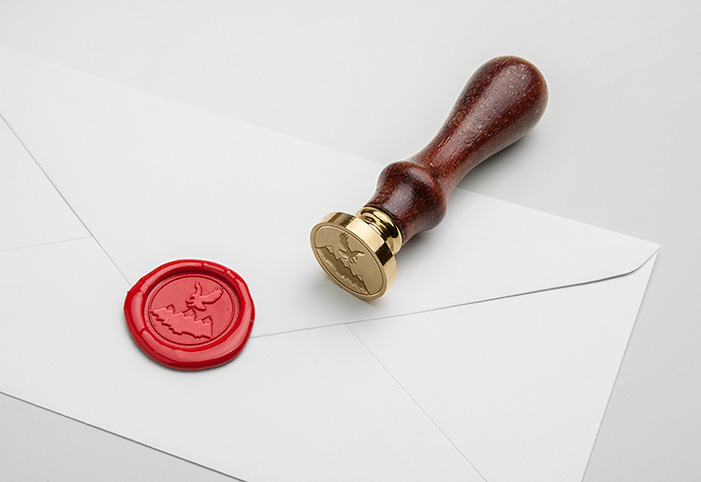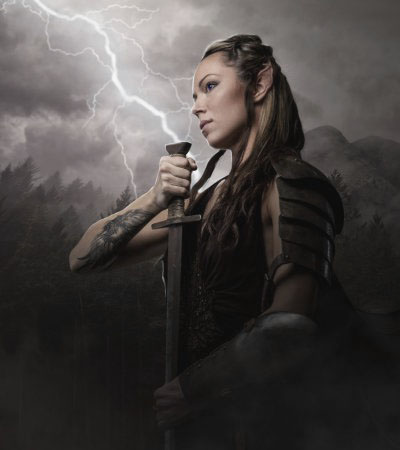The Affirmation of Avalon
The death-poem of Lyrissande Verbena -- a call for elven unity.
The swan ship did not make a full landing on the deck of the Freya’s Wings, because that might have smashed their keel. Instead, they threw down mooring lines. Shaundar could see that it was, indeed, crewed by elves. He thought they all looked like Alfar. A ladder was tossed over the side, and a regally-dressed Alfar lady stepped down. She looked like anything but a spacer. She seemed to step gingerly, almost as if she were afraid that the deck was going to pitch her off into space. “Thank you for receiving me,” she said in a particularly lilting dialect of Elvish. “I am the Lady Starwind of Sol’Tohvassneris. I am here to negotiate for the release of your Alfar prisoners.” A surge of anger flooded Shaundar’s veins. “Just the Alfar, Lady Starwind?” She blinked. “No, I suppose if you have other elven prisoners, we would be willing to negotiate for them as well.” Shaundar was not mollified. It was clear that elves who were not Alfar were a mere afterthought. “We might be willing to negotiate,” rumbled Korin warily. “What are you offering, elf?” She frowned. Evidently, she was not used to being spoken to so informally. “Ransom as befits their rank and station, of course,” the Lady said. “What is a life worth, Lady Starwind?” Shaundar asked her. Again, she blinked, but the question was not entirely rhetorical. “We study your literature, you may be interested to know, as well as your star charts and your ship’s logs. Do you know a poem called the Affirmation of Avalon, Lady? It’s about your world, isn’t it?” Her mouth gaped open. Savagely, Shaundar went on. “I mean, sol means ‘new’ in Elvish, does it not? And the poem speaks of ‘Tohvassneris.’ So, what happened to old Tohvassneris?” Lady Starwind spat the words through tight lips. “It was destroyed. And I think you know that.” “You may address me as ‘Clan Champion,’ Lady. It’s a title that roughly equivocates to yours, except that mine carries martial as well as political authority. Yes, I do know that. I also know how, and why. Do you?” Her lips were white. “It was defeated by a human tyrannical army, Clan Champion,” she said in a quiet voice. “It was razed to the ground, and the earth was salted so nothing would ever again grow where it had fallen.” Korin’s eyes widened as he observed this exchange. “And why was it defeated?” “Because there was no one to help them when they called for aid.” He snarled, “And why was that?” She sighed. “Because,” she said, “when a Sidhe elf came to beg for their help to defeat this army as they invaded her homeland, they refused her aid, because she was not Alfar. So, they were destroyed. The Sidhe could not answer Tohvassneris, because they were not there.” “That’s right. Her name was Lyrissande Verbena, and she died fighting the Tyrannen, as they openly named themselves, because only a few scattered tribes and the Khel’Nasar, the aerial cavalry of the forest,” he added for Korin’s benefit, “came to her call. But the poem she wrote has spread quite far since then.” He looked to Korin. “You would understand it well. It was her death poem, the last thing she wanted the world to remember before her life was snuffed from her.” Korin thumped his chest solemnly. Shaundar met the Lady’s eyes. “So, until someone comes here who does not view the other elves as an afterthought, you may not have them for ransom. Not a one.”The Affirmation of Avalon is a poem that was composed by Khel'Nasar Lyrissande Verbena just before her final stand (see Last Stand of Lyrissande Verbena .) It has come to represent a growing movement towards elven reunification and overcoming ethnic and political barriers.
Purpose
Lyrissande Verbena composed the Affirmation as her death-poem. She knew that she was about to lead her limited gathered forces against an overwhelming foe. She left the poem as her last words to the Elven People, who had failed to come to her banner when called. Gathered witnesses included Valrik Stormbringerand Kaimen Stormbringer, whom she charged with seeing that her words were not forgotten. Her friend, Sluagh Lashyva Shadowwalker, also recorded the poem on psionic crystal for posterity.
Document Structure
Publication Status
The Affirmation of Avalon has been widely sung by elven bards, and published in elven circles who seek greater unity with their fellow and sister elves.
Historical Details
Background
The war now known as the Tyrannen Invasion on Caer'Thun was devastating to the peoples of the world. A humanocentric empire that appeared seemingly overnight, they fielded hundreds of thousands of well-equipped troops, and, it was said, boasted magic that gave even the elven archmages pause.
Lyrissande Verbena was the leader of a band of adventurers who sought to unite the resistance against the Tyrannen forces. She was a Sidhe from the forest nation of Velmailain. Recognizing the inevitable threat the Tyrannen posed, she traveled broadly in an attempt to win aid from nearby nations, before they were individually subsumed by the growing empire. Most nations were reluctant to get involved, believing that lying low and avoiding conflict was their best personal strategy.
In particular, her pleas fell on deaf ears among the elven nations. Knowing that Velmailain was soon in the path of the Tyrannen, she made her way to the Alfar city of Tohvassneris to plead with the archmages and leaders there. But still sore from the Succession Wars, Crown Prince Selnaris Khi'Marinae refused her, and Velmailain, aid.
Velmailain fell to the Tyrannen. Lyrissande and her band went underground to organize the resistance movement, and it was during this time she is believed to have made the long quest to the Iron Hills to join the Khel'Nasar, a form of knightly order sworn to defend the forests. She and her companion Nasar, named Omen, returned with Az'halen, Winglord of the Khel'Nasar, to lead them in the charge against the Tyrannen, only to find that Tohvassneris had already fallen and the Tyrannen were marching on the Plains of Vel'darra.
Determined to stop the Tyrannen from destroying the last major elven nation on Caer'Thun, Lyrissande rallied everyone she could find to march in their defense. Her army mostly consisted of ragtag remnants from the disaffected of Caer'Thun, including liberated gladiators, the Khel'Nasar, the The Freedom Branch, some scattered paladin's orders, the dwarves of Hammerfell Keep and the nomadic Nunnehi and Orc tribes of Vel'darra. It was on the night before this fatal battle that Lyrissande composed the Affirmation.
At the last moment, a flotilla of Avalonian Imperial Navy ships strafed the battlefield, brought to aid the fight by the Crown Prince himself. The army did manage to turn back the invaders, but not without great loss of life, including that of Lyrissande herself, who was destroyed in an instant by a powerful spell cast by a Tyrannen archmage.
Her death, and the deaths of so many others, rallied Caer'Thun to her banner as her efforts in life could not, and the surviving and occupied nations of Caer'Thun banded together to liberate themselves from the Tyrannen once and for all. Their nation was driven back to the island it came from, its heirs were destroyed, and it, and the brave elf who had stood up against it, passed into legend.
History
Inspired and chastised by the Affirmation of Avalon, the elves of Caer'Thun worked to help each other rebuild. Sol'Tohvassneris was built in place of Tohvassneris, and the Alfar ceased their practice of keeping slaves of other elven ethnicities in that city, as had been going on since the Succession Wars. Indebted to the elves of Veladin, who had taken many of them in as refugees when Tohvassneris fell, they responded by declaring Sol'Tohvassneris a neutral port, accessible to any elf or any member of their allied races to access the stars.
The Pegasus Knights, who had been an order of aerial cavalry that served Tohvassneris, declared their independence, and instead swore to defend the common elven interest, and travellers making their way to and from the port city. Although a faction of the Sol'Tohvassneris nobility remained haughty to other elves and other races due to their embarrassment, the long-running cold war between the elven peoples of Caer'Thun ended.
Public Reaction
The Affirmation of Avalon has been broadly embraced by elves seeking reunification or just fairer treatment due to ethnicity. It is also extremely popular among the Church of Freya because it implies sanction and encouragement for mixed relationships. Certain elven aristocratic factions, such as the Alfar and Rua'alfar families of Sol'Tohvassneris, have resisted the circulation of the Affirmation (strangely, without any support from the Crown Prince, who remains a vocal proponent of the Affirmation and its sentiments).
Bards and scholars have written extensively about the Affirmation, in interpretation, critique, or defense.
It is not uncommon for scholars to speculate as to why Verbena chose to use the common vernacular for the different ethnicities of elves, rather than their formal names. It is generally accepted by scholars that the use was intentional, to emphasize the similarities between elves, as opposed to their differences. Some have tried to claim that her use of the vernacular represents a lack of formal education, but this theory is broadly discredited.
Another point of critique is Verbena's choice to include Sluagh, and her characterization of "Svartalfar" as a violent, hateful culture. However, Lashyva Shadowwalker widely defended this decision, claiming that she was mostly responsible for Verbena's characterization, and that this was an accurate reflection of Sluagh culture on Caer'Thun.
Legacy
The broader effect of the Affirmation was seen in unity movements and commoners' movements, both on and off Caer'Thun. Notably, Laeroth Oakheart made use of the Affirmation in his election campaign to the Peridot Council of Representatives, to all reports sincerely, and he won by the greatest margin in living memory.
The Affirmation is a lasting testament of the sentiment of elven unity and equality. It continues to be cited by elves everywhere for such causes.
Don't forget that you can click on the blue compass on the left to access the Table of Contents at any time!

Want to read all of the Toy Soldier Saga fiction, even before the rest of the world does?Subscribe now!
Type
Text, Literary (Novel/Poetry)
Medium
Vellum / Skin
Authoring Date
3rd Buck Moon, 3813 AC
Authors
Signatories (Characters)
A Call for Unity
Narissa realizes she has underestimated her husband. Or perhaps, she has underestimated the intensity of Skyreach’s discontent. Never has she seen Laeroth so alive. He pontificates at length in the public square. He never raises suspicions about his theory of corruption. Instead, he rails against the injustice of the class divisions between Alfar, Nunnehi, and Sidhe. It’s not just a political talking point. They’ve had long conversations about this, the two of them. “We are all the children of Lugh!” he cries. “And even the Vanir are Tuatha de Danaan first! We were never meant to live separately. We are siblings! Why should one of us prosper while another starves? It’s not meant to be like this!” The young, who perhaps chafe under this system more than the old, hear the message and embrace it. Someone brings a verse from a different world called Caer’Thun in a different system, written by swordsinger Lyrisande Verbena, and it is circulated widely. Her tale spreads in taverns and tea parlours. She tried to rally her people to join together to fight a great tyranny, but the elves of her world turned a deaf ear to each other, and focused instead on their own individual concerns. The great port city of Tohvassneris was destroyed because the proud Alfar who dwelled there did not call for help. She disappeared in a great battle soon after, and her companions carried on her crusade. Her death rallied all the elven nations as her life could not, and many other races flocked to the banner of her memory as well. Together, they defeated the forces of darkness. Laeroth gets a hold of a copy of the verse, and at his next speech, he simply reads it from the crumpled sheet of parchment he’s scratched it on. “Lugh, Elf-father, hear my cry!” he begins. “For I stand witness, that on this world and any other, there be only one kind of elf. And no matter where we choose to make our home; from the depths of the underworld, to the azure sky and beyond, we are one people, and one spirit; conjured from Arianrhod’s own tears, formed of the earth by Your blood.” It goes on, as one by one Lyrisande (and thus, Laeroth too) declares that she is each of the known elven peoples; sun elf and moon elf, nymph and sylph, wood elf and star elf and dark elf, and even half-elven. “How I grieve, that we have turned our faces away from one another!” the verse continues. “How we have hardened our hearts to each other’s cries! I would have defended you, Tohvassneris. Children of Avalon, remember!” The cheering vibrates the windows of the churches. People march and chant in the streets for hours. And after, graffiti begins to appear that reads, “Lugh, Elf-father, hear my cry!” “On this world, and any other, there be only one kind of elf,” and “Children of Avalon, remember!”





Comments